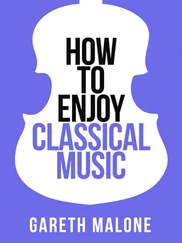STEPHEN FRY - OF CLASSICAL MUSIC
Здесь есть возможность читать онлайн «STEPHEN FRY - OF CLASSICAL MUSIC» весь текст электронной книги совершенно бесплатно (целиком полную версию без сокращений). В некоторых случаях можно слушать аудио, скачать через торрент в формате fb2 и присутствует краткое содержание. Жанр: на английском языке. Описание произведения, (предисловие) а так же отзывы посетителей доступны на портале библиотеки ЛибКат.
- Название:OF CLASSICAL MUSIC
- Автор:
- Жанр:
- Год:неизвестен
- ISBN:нет данных
- Рейтинг книги:5 / 5. Голосов: 1
-
Избранное:Добавить в избранное
- Отзывы:
-
Ваша оценка:
- 100
- 1
- 2
- 3
- 4
- 5
OF CLASSICAL MUSIC: краткое содержание, описание и аннотация
Предлагаем к чтению аннотацию, описание, краткое содержание или предисловие (зависит от того, что написал сам автор книги «OF CLASSICAL MUSIC»). Если вы не нашли необходимую информацию о книге — напишите в комментариях, мы постараемся отыскать её.
OF CLASSICAL MUSIC — читать онлайн бесплатно полную книгу (весь текст) целиком
Ниже представлен текст книги, разбитый по страницам. Система сохранения места последней прочитанной страницы, позволяет с удобством читать онлайн бесплатно книгу «OF CLASSICAL MUSIC», без необходимости каждый раз заново искать на чём Вы остановились. Поставьте закладку, и сможете в любой момент перейти на страницу, на которой закончили чтение.
Интервал:
Закладка:
1893 IN THE STYLE OF THE
??7 ighteenninetythreesome of independentlylaboured with JtjKiermosthardie aswellasthe dual-duel-jewelaffordedby franc(incensed?)russian and now trulyallied. Cheerfor Hansel greetall by humperdinck, englebert - names alongsidedly decidedly HenryBenzKarlaFord and backagain. Oh, moveover newartnouveau-ver, the tolling bellextolling 'gone Gounod, hear Coalport, gone petrilichtchaikovskyite'. Man reaches Manchester-le streets run with watercanal, while materialmatters in matabele materialize in rabelaisian rebellion. A lady, Margaret Scottfree is a woman with little importance-or-less, at once the same time.'
Good. Clear as a bell. Actually, let me just pick one partially concealed item from that litany of nonsense, namely 'gone Gounod, hear Coalport, gone petrilichtchaikovskyite'. That was meant to be something like 'Gounod^ dies (in 1893), but Cole Porter is born, whereas Peter Ilyich Tchaikovsky dies.' True enough. In exchange for one of the greatest songwriters ever, we had to part with Gounod and Tchaikovsky in 1893.
Earlier in the year, Tchaik had travelled to Cambridge to receive an Honorary Doctorate of Music from the university, and, not long after, conducted the premiere of his new symphony, the Sixth, presumably with one hand firmly on his crown so as to spare the people in the front row the distasteful spectacle of his head falling into their laps. (Well, it would be awful, wouldn't it? I mean, just think of the dry-cleaning bills, alone.) He'd labelled his Sixth Symphony the 'Pathetique', and its first night audience would prove to be more than a little unimpressed. But let's not get on to that.
Cut now, instead, to Ellis Island, where Dvorak had recently landed - not long after Tchaikovsky had left - with the firm intention of making America his home. Spookily, he, too, had an Honorary Doctorate in Music from the University of Cambridge in his case.
So. It's 1893 - I know, I know, I keep saying that - and two very different composers have come up with two very different symphonies. I mentioned chalk and cheese earlier, and here it is again: these two symphonies, heads firmly above the parapet, as if to prove not only quite what a melting pot of different styles and sounds 'late romantic' really was, but also quite what a different hand life had dealt their two creators. On the one hand, you have Tchaikovsky's Sixth, the 'Pathetique', complete with a quote from the Russian Requiem J» Gounod, Charles: French composer, mainly remembered today for his reworking of Bach's First Prelude to make the 'Ave Maria'. In his time, he thought he might turn out to be a priest, but, eventually, composing got the upper hand. He won the obligatory Prix de Rome (didn't they all) and even spent five years in London, where he went on to found what is now the Royal Choral Society. Sorry to put Gounod in a footnote, but, well, space is at a premium. service and described variously as one of the greatest of the genre, 'a homosexual tragedy', and 'the most pessimistic utterance in all music'. On the other hand you have Dvorak's Symphony No 9, 'From the New World', complete with quotes from Negro spirituals and Native American tunes, and so full of optimistic exuberance for a new beginning. 'Pathetique', and 'From the New World' - just their titles say it all. Within months, the depressed composer of the 'Pathetique' would, some say deliberately, help himself to a glass of cholera-infected water and die. Within years, the optimistic composer of 'From the New World' would return to Prague, become boss of the Conservatory, and be made a life peer in the Austrian House of Lords. Two symphonies, two composers, two vastly different outcomes; but both high romantics at the height of their powers, producing simply fantastic works. Incompletely and utterly yumerouslyness.
SEAL OF THE CENTURY
W
ow, this seems like a huge leap, but, well, I refer the honourable gentleman to the title on the front of the book cover that I gave, a few moments ago. Incomplete! JNcomplete! OK? Good. Now, I want to cut, mercilessly, to 1897, so let me lift up the edge of the carpet and show you a few years that I swept underneath.
I've got to mention 1896, without whom this film would never have been made. Sorry, I was reading from the wrong set of notes, there. I've got to mention 1896, because of Richard Strauss, and a piece of music he composed therein. It's more or less a symphony - a three-movement symphonic poem, to be precise - the first two minutes of which are a sort of 'The Big Bang for orchestra', and make one of the best uses, ever, of the organ as an orchestral instrument. It was called, after the Nietszche book, Also Sprach Zamthustm, and part of it went on to fame and probably no fortune when it was featured in the Stanley Kubrick film 2001: A Space Odyssey. It was also the year that gave us the last Gilbert and Sullivan operetta, as well as a whole lot of stuff going on in South Africa - far too complicated to get into one line. It is, of course, also the year that a host of countries unite in the first modern Olympic Games. All that and one of the greatest, most romantic (in the 'slush' use of the word, I mean) operas ever written. The thing of beauty that is… La Boheme. (Wipes tear from eye.) But, sadly, we haven't got time for that right now - maybe later. We've got to crack on and seal the century.
Yes, it's 1897 - what about that for sleight of hand? - and we really are skating. Very soon, there would be a new century, and then where would we be, eh? Indeed. But for now, it's fin de Steele', as they say in Leeds - the nineteenth-century's autumn years. Queen Vic was having her Diamond Jubilee and HG Wells is the author of the moment. This year, he had starded everyone with The Invisible Man and, a couple of years back, it was The Time Machine - he's on a roll. Also, JJ Thomson has discovered the electron. In fact, I have a transcript, here, of the precise moment he did: '…Bloody hell, that's small!' Wow. It's as if you were there, isn't it? Added to that, there was a famine in India, die remains of a Gold Rush in Canada's Klondyke, and, well, you can almost feel the new century approaching. The art world, too, is really pulling into another interesting period. Just as Sir Henry Tate donates an art gallery to the British people, figures such as Matisse and Pissarro are really beginning to produce amazing work. This year, it's The Dinner Table from Matisse, and the Boulevard des Italiens from Pissarro. Rodin is also still knocking 'em out - a bronze of Victor Hugo in 1897. In music, sadly Brahms has died, and Mahler has taken over as MD of the Vienna Opera House. Good and bad, I suppose, depending on your point of view. Yes, he did produce wonderful things with the Viennese Opera, but it is said that he didn't suffer fools gladly - a bit of an acid tongue, old Gus, by all accounts. Of music in general, though, in 1897? Well, it's still such a mix! It's not just a mix of styles now, either, it's a mix of out and out languages too. That Spike Milligan bit I was talking about. It's not that people don't agree on the styles o? the sounds to make any more, or on the feel of the music. No. Very soon, if not already, they will start to disagree on the very ESSENCE of music - the syntaxes, the languages, the rules on what even constitutes music. In much the same way as it happens in literature and in art, music will look in on itself and say, 'Well, no, actually - I don't take that as understood at all. I want to go right back to the basics and question how we think of, and what we think of as, music' And let's face it, once you start doing that, there's no stopping.
But for now, we're safe. No one has split the atom, no one has split the tone. Er, as it were. Indeed, if you wanted to be assured that 'music' is still intact, so to speak, and that it would always be there if everything went wrong, then you need look no further than what John Philip Sousa was putting out in 1897.
Читать дальшеИнтервал:
Закладка:
Похожие книги на «OF CLASSICAL MUSIC»
Представляем Вашему вниманию похожие книги на «OF CLASSICAL MUSIC» списком для выбора. Мы отобрали схожую по названию и смыслу литературу в надежде предоставить читателям больше вариантов отыскать новые, интересные, ещё непрочитанные произведения.
Обсуждение, отзывы о книге «OF CLASSICAL MUSIC» и просто собственные мнения читателей. Оставьте ваши комментарии, напишите, что Вы думаете о произведении, его смысле или главных героях. Укажите что конкретно понравилось, а что нет, и почему Вы так считаете.










